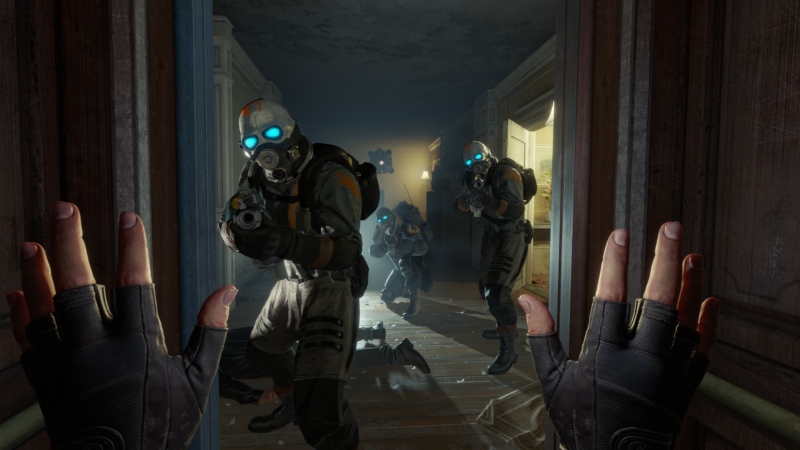Source: The Week: Most Recent Home Page Posts

They always do it. Whenever these leeching, sneaking, pompous, presumptuous, supercilious, weaselly would-be despots we call our government spy a chance to grasp some power that is rightly out of any and every person's reach, they lunge for it.
The chance, this time, is the legitimately unprecedented situation occasioned by the pandemic spread of the novel coronavirus. And the power is the functional abrogation of half our Bill of Rights — Amendments Four through Eight — in the form of indefinite detention without trial during emergencies.
This is utterly unjustified by the COVID-19 outbreak. It is not a misguided good-faith effort to protect public health. It is a transparent charge toward authoritarianism, and it must be crushed.
The Trump administration's plan came to light Saturday afternoon with Politico's report on a Justice Department request to Congress. In the documents, the administration reportedly asks lawmakers to give the attorney general authority to direct chief judges of district courts to suspend court proceedings "whenever the district court is fully or partially closed by virtue of any natural disaster, civil disobedience, or other emergency situation." The suspension would override "any statutes or rules of procedure otherwise affecting pre-arrest, post-arrest, pre-trial, trial, and post-trial procedures in criminal and juvenile proceedings and all civil process and proceedings." It would lift the statute of limitations on criminal and civil proceedings throughout the emergency and for one year after it concluded.
This proposes an expansive grant of power to gut some of our most basic rights. It would effectively nullify habeas corpus, our guarantee of a court hearing in which the state must justify our detention or be compelled to release us. This ancient right, secured in our Sixth Amendment and the Magna Carta before it, is foundational to our justice system. Locking people away without due process is the province of tyrants.
The specification of "civil disobedience" as a reason to shut down our courts is as insulting as it is galling. They didn't even bother to say "violent rioting and looting" or "armed rebellion." No, civil disobedience — by definition, a peaceful protest — is here deemed cause enough to demolish due process rights on the president's whim.
Also deeply worrisome is the inclusion of "pre-arrest" procedures among laws that can be suspended. That could mean no Miranda warning, no lawyer, no phone call, just straight to jail for who knows how long. "I find it absolutely terrifying," Norman L. Reimer, executive director of the National Association of Criminal Defense Lawyers, told Politico. "Especially in a time of emergency, we should be very careful about granting new powers to the government."
That is particularly so because times of emergency — in the legal sense — are oft-immortal creatures of the government's own making. Pursuant to the National Emergencies Act of 1976, the president can declare a national emergency whenever he likes and thereby activate a host of new powers for himself. Predictably, presidents do this fairly often, motivated more by a desire to bypass Congress than by whether the circumstances at hand fit any reasonable definition of a national emergency. (Recall President Trump's national emergency declaration after Congress refused to fund his border wall folly.) Thus there are dozens of ongoing national emergencies declared by Trump and his predecessors for situations including trade with Sudan, Albanian insurgents in Macedonia, and alleged election fraud in Belarus in 2006.
The COVID-19 outbreak is clearly far more of a national emergency for the United States, in the ordinary sense of the words, than 14-year-old Belarusian election irregularities. But they share the same legal classification, a classification the president can apply at will. If permitted, the seizure of authority proposed in these Justice Department papers will be abused in concert with all manner of national emergency declarations.
And it will not be undone. The novel coronavirus eventually will be contained, but the state's iron grasp of this power, once allowed, will not loosen. "History demonstrates again and again that governments use a crisis to expand power and violate vital constitutional principles," Scott Bullock, president of the Institute for Justice, told Reason of the DOJ proposal. "And when the supposed emergency is over, the expanded powers often become permanent."
The recent history of indefinite detention itself illustrates this well. Civil libertarians warned that its use by the George W. Bush administration in the war on terror was a dangerous encroachment on constitutional rights, but our alarm was brushed aside with insistence that only terrorists had any reason to worry. Then the Obama administration expanded the practice. Now the Trump administration seeks to expand it further, jettisoning the terrorism justification entirely. It's predictable — and despicable.
Democrats' majority in the House of Representatives, bolstered by enough GOP senators to tip the balance against the DOJ request in the upper chamber, will almost certainly keep the Trump administration from getting what it wants here. That's reassuring, but we cannot let it lull us into false security.
The last three administrations have all inched in this direction. Washington is licking its chops over our due process rights. In this and every crisis, it must be firmly muzzled.
Want more essential commentary and analysis like this delivered straight to your inbox? Sign up for The Week's "Today's best articles" newsletter here.


